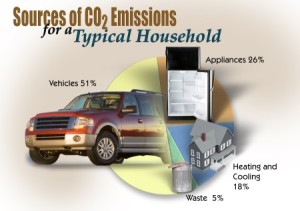As Jim Bruggers of The Courier-Journal in Louisville noted on his blog, it’s “climate week” in the U.S.
Meetings this week in New York and Pittsburgh are supposed to lay the groundwork for a major climate change convention in Copenhagen in December.
The “COP15” treaty is meant to replace the Kyoto Protocol, which the United States never adopted. According to the United Nations Framework Convention on Climate Change:
2009 is a crucial year in the international effort to address climate change. A series of UNFCCC meetings are taking place thoughout the year, designed to culminate in an ambitious and effective international response to climate change, to be agreed at the United Nations Climate Change Conference (COP 15) in Copenhagen, 7-18 December.
A New York Times story last week described the climate change efforts as lacking leadership. No one wants to take the lead for fear of being criticized back home:
The negotiations for a new climate change agreement to be signed in Copenhagen in December are badly stalled. With the agreement running more than 200 pages — including what negotiators estimate are a couple of thousand brackets denoting points of differences — diplomats and negotiators fear that the document is too unwieldy to garner a consensus in the coming months.
But a Reuters story today said U.N. climate chief Yvo de Boer has predicted that China will become the “world leader” on addressing climate change. Chinese President Hu Jintao is expected to announce policy measures on greenhouse gas emissions at the New York meeting on Tuesday. China is the world’s largest greenhouse gas emitter, with the United States in second place.




 By contrast, 84% of scientists say the earth is warming because of human activity; only 10 percent say it’s due to natural changes, and just 4 percent say there’s no evidence of climate change.
By contrast, 84% of scientists say the earth is warming because of human activity; only 10 percent say it’s due to natural changes, and just 4 percent say there’s no evidence of climate change.

Recent Comments